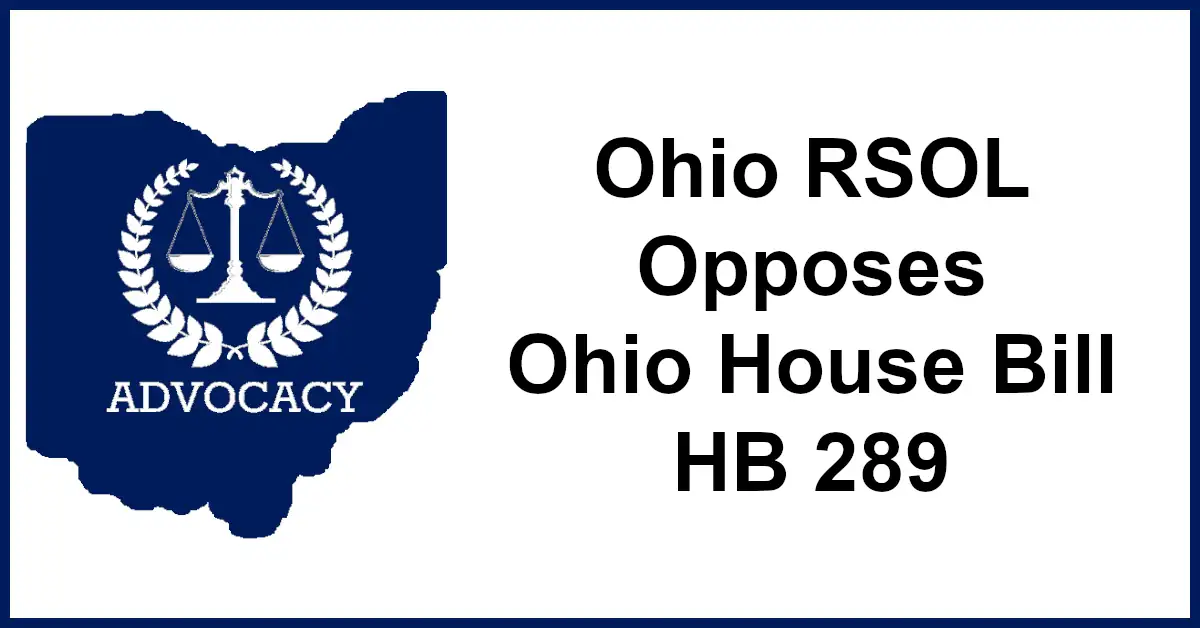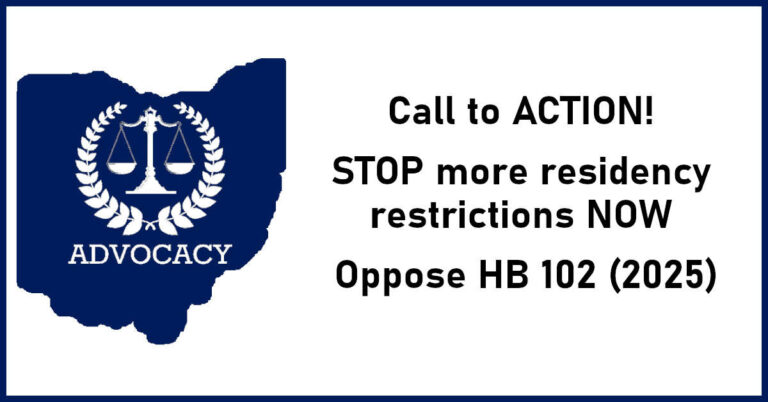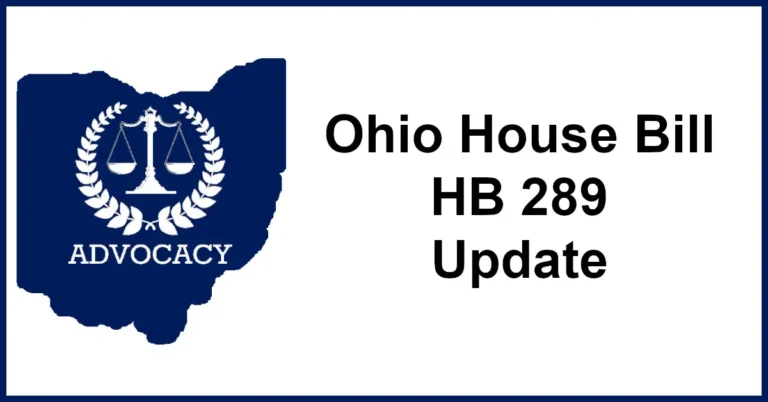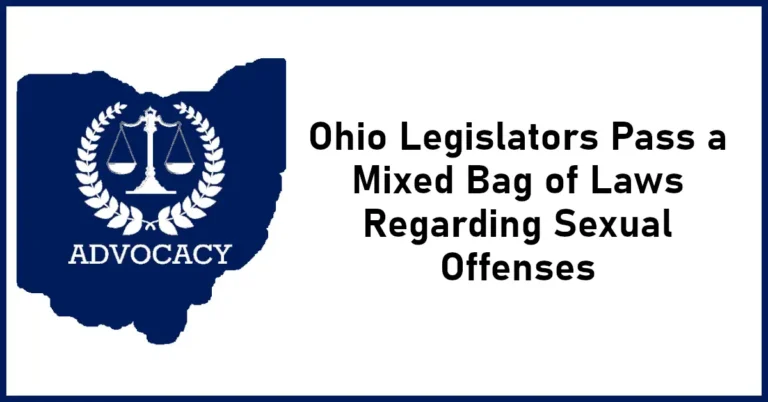Ohio for Rational Sex Offense Laws opposes all aspects of Ohio House Bill 289. Ohio H.B. 289 includes the following attacks on Ohio citizens who are forced to register.
- If a Tier I or Tier II sex offender/child-victim offender fails to comply with duties under the SORN law, the period of time that the offender has a duty to comply is tolled during the time of the failure
- Makes the offense of disseminating matter harmful to juveniles a sexually oriented
offense and a person who violates the offense a Tier I Sex Offender/Child-Victim
Offender. - Amendment- Requires transient registrants to register with the county sheriff’s office every 30 days.
Ohio House BIll 289 Status Updates
Tolling:
Ohio RSOL members submitted testimony opposing the tolling requirement. Unfortunately, the committee passed the bill unanimously and by the Ohio House by 87-1.
Adding offense of Disseminating:- SUCESSFULLY REMOVED
Ohio RSOL members submitted testimony opposing adding and additional registrable sex offense. The Office of the Ohio Public Defender also opposed the addition of adding the offense of disseminating matter harmful to juveniles as a sexually oriented
offense. The bill was modified to remove this portion of the proposed legislation.
30-day Transient Registration Requirement:
Ohio RSOL is actively opposing this legislation in cooperation with Homeless and reentry organizations. View the memo of opposition to the Senate Judiciary Committee chair Sen. Nathan Manning.
Ohio H.B. 289- CALL TO ACTION!
Who to call and write NO LATER THAN Tuesday, Dec. 3, 2024:
Bill Sponsor(s):
Rep. Monica Robb Blasdel, Sponsor
Rep. D. J. Swearingen, Co-Sponsor
Members of the Senate Judiciary Committee (click name for contact information)
Sen. Nathan Manning, Chair
Sen. Michele Reynolds, Vice Chair
Sen. Paula Hicks-Hudson, Ranking Member
Sen. Matt Dolan, Member
Sen. Theresa Gavarone , Member
Sen. Rob McColley, Member
Sen. Kent Smith, Member
Submit written testimony No Later than 12:00pm Tuesday, Dec. 3, 2024.
Email your testimony accompanied with a completed witness form to Brendon.Embry@ohiosenate.gov.
Opposing 30-day Registration Position Statements
Ohio RSOL promotes using the VPSA Values Message model.
Value Statement Ideas
- We assert that the responsibility of reporting applies equally to homeless registrants and any other citizen compelled to register.
- We recognize homelessness as a social issue that demands attention. However, we believe that further punishment through increased reporting requirements and significant criminal penalties would be counterproductive and inhumane.
Problem and Solution Ideas
Problem 1: The presence of a public registry and local residency restrictions inherently contributes to increased homelessness within Ohio’s population of citizens forced to register.
Solution 1: The legislature should focus its efforts on developing and implementing resources and policies that effectively address unemployment and homelessness, rather than criminalizing those experiencing homelessness. This strategy should consider the negative impact of the registry on individuals’ perceptions.
Problem 2: The sex offender registry, implemented by the Ohio legislature, contributes to an enhanced likelihood of unemployment and homelessness. The creation of this risk, followed by its criminalization, effectively condemns Ohio citizens to the failure of social integration.
Solution 2: The implementation of more burdensome registry requirements should be reconsidered, especially in light of the existing social marginalization of the affected group. A more appropriate course of action would be to enforce the same reporting requirements on them as on all other Ohio residents mandated by law to register.
Problem 3: The requirement in HB 289 for homeless registrants to report non-fixed addresses every 30 days presents substantial practical, legal, and logistical impediments.
Solution 3: The definition of “residence” should be included within ORC 2950 and other relevant statutes. This definition should encompass “any permanent, temporary, or open-air location where an individual resides, either temporarily or permanently, or is visiting as a guest.” Furthermore, in situations where a residence lacks a street address, the sheriff shall utilize the county’s Geographic Information System (GIS) to record its coordinates. This policy ensures equal treatment by requiring all Ohio citizens forced to register, including those experiencing homelessness, to register and meet the same requirements.
Action/ASK Ideas
- The proposed HB 289 amendment, which criminalizes homelessness, should be rejected. In its place, an amendment should be introduced that requires sheriffs to record the GIS coordinates of homeless registrants and allows them to register at the same time as all other Ohio citizens mandated by law to register.
- It is recommended that the administrative procedures for transient registration outlined in HB 289, which include a 30-day registration period, be removed as they are wasteful, harmful to homeless individuals, and place an undue burden on law enforcement.
- We firmly oppose the amendment to HB 289 requiring transient Ohio residents to register every 30 days. We advocate for the strategic application of political power to establish resources and policies that combat unemployment and homelessness, particularly those driven by the negative social implications of this registry.





I oppose this bill. It makes things worse for registered citizens. It increases their inability to rebuild their lives and to become responsible citizens
Thank you for agreeing with Ohio RSOL, Rena. To be effective, you must have your voice heard. Call or contact the sponsors and committee members and voice your objection and concern. Submit your opposition testimony before the deadline.